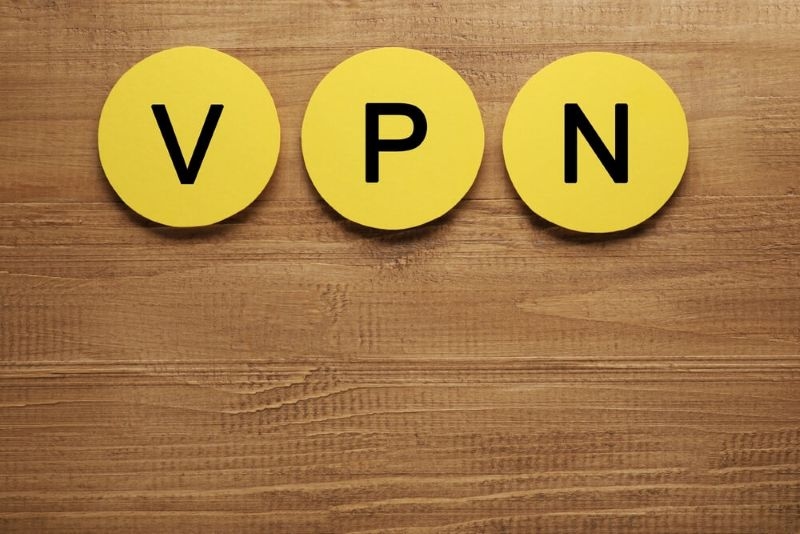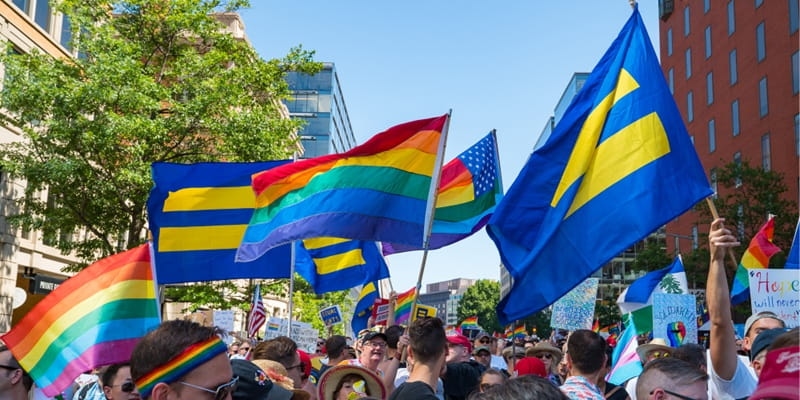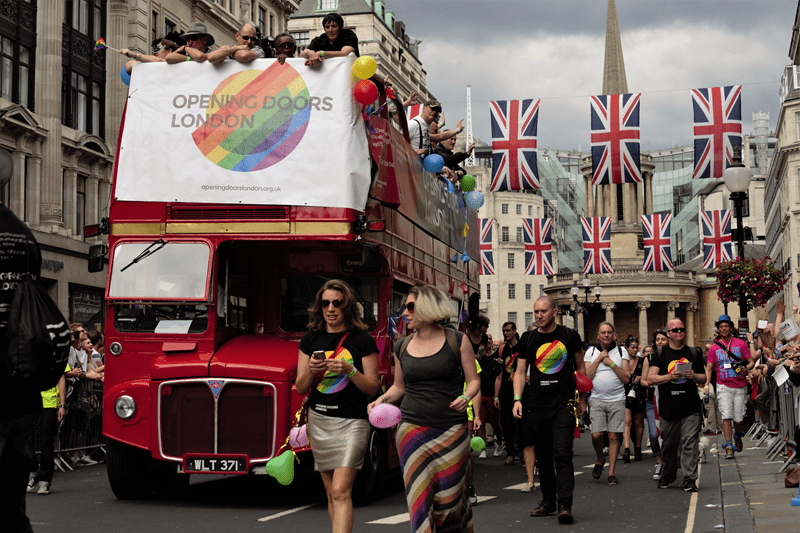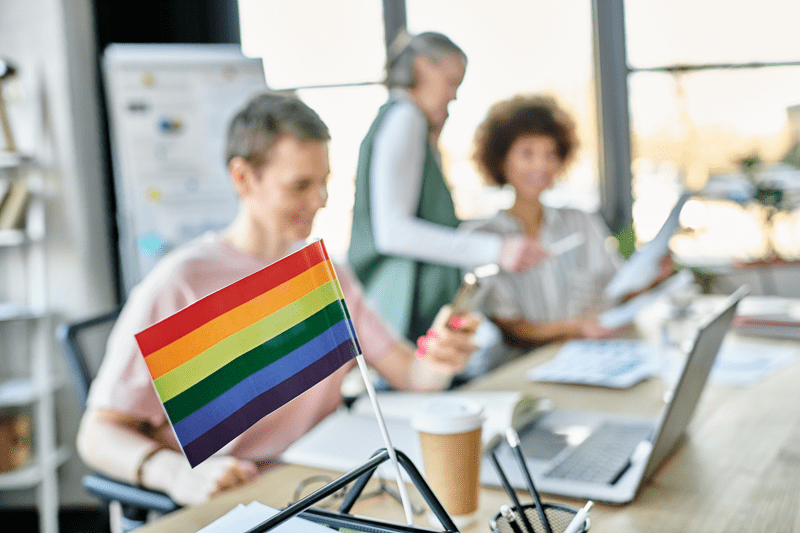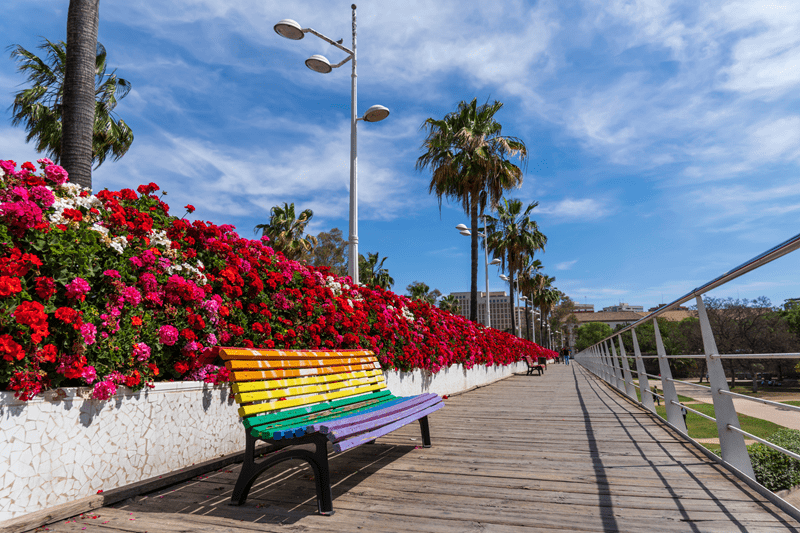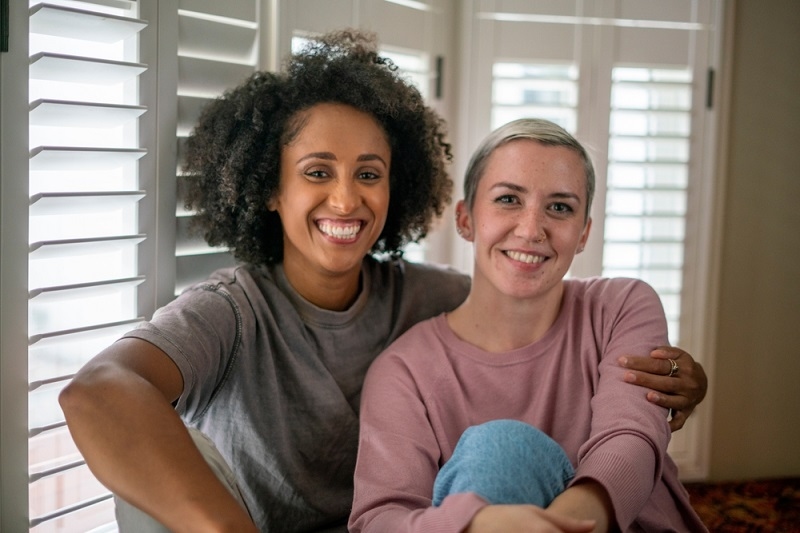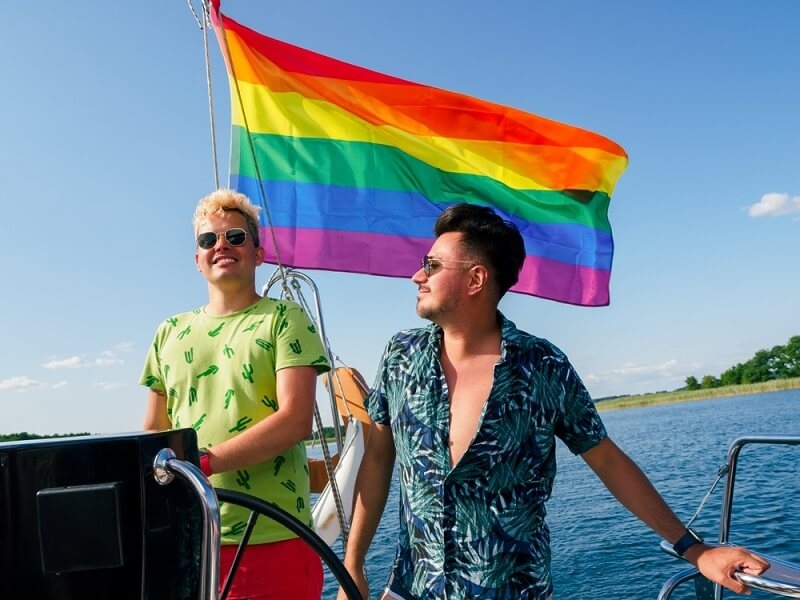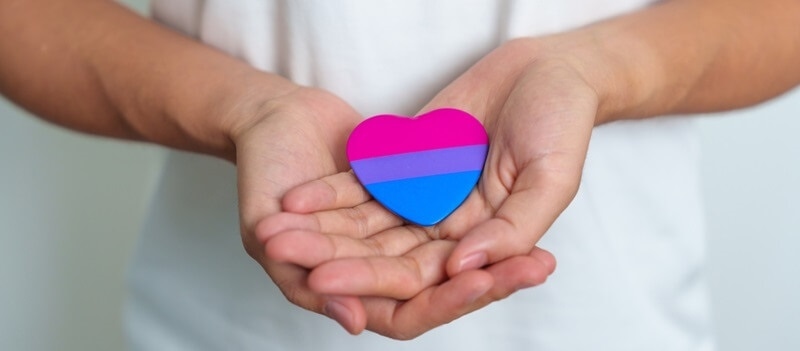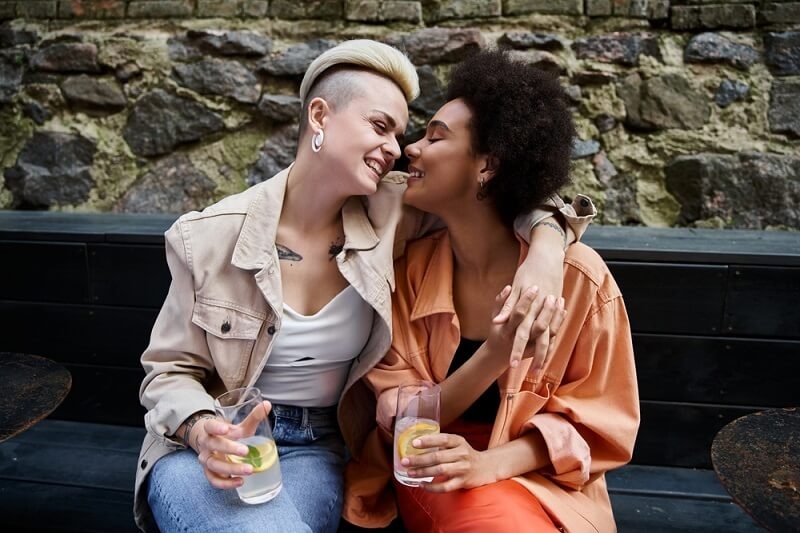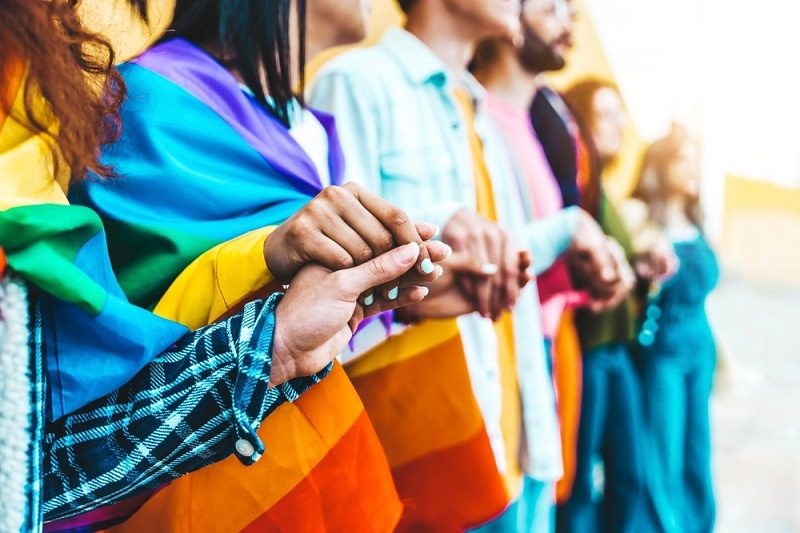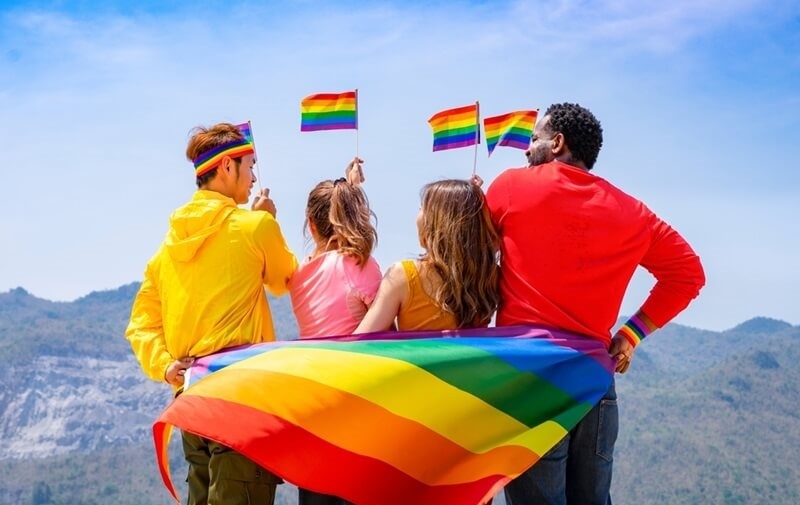From Supporter to Ally: Building Bridges in the LGBTQ+ World

In today's diverse world, the term "ally" has gained prominence, especially in the context of the LGBTQIA+ community. But what does it mean to be an ally? And why is it crucial to be more than just a passive supporter? Let us explore more!
Definition of an Ally
An ally, within the LGBTQIA+ context, is someone who, although not necessarily a part of the community, stands up for, supports, and encourages the LGBTQIA+ individuals around them. It's a term that transcends mere sympathy or passive agreement. An ally actively fights against discrimination, seeks understanding, and pushes for a more inclusive world.
The Importance of Active Allyship
Being an ally is not just about silent agreement or passive support. It's about taking tangible actions, making a conscious effort to understand the challenges faced by the LGBTQIA+ community, and using one's privilege to advocate for change. It's about being proactive, not reactive.
Understanding the Basics

Gender, Sex, and Sexuality: The Key Differences
Gender refers to the social, behavioral, and cultural attributes, expectations, and norms associated with being male, female, or non-binary. It's how individuals perceive themselves and expect to be perceived by others. Sex is biological and refers to the physical characteristicschromosomes, hormones, and reproductive organsthat are typically labeled as male or female.
Sexuality pertains to whom one is attracted to, whether it's the same sex, opposite sex, both, or neither. Understanding these distinctions is paramount to grasping the diverse experiences within the LGBTQIA+ community. It helps in recognizing that gender identity, biological sex, and sexual orientation are independent facets of a person's identity.
Steps to Becoming a Good Ally
a. Educate Yourself
Dive deep into issues that resonate with the LGBTQIA+ community. Read books, listen to podcasts, and explore websites that offer insights into their world. Knowledge is the first step towards empathy and understanding.
b. Be a Visible Supporter
Show up. Attend LGBTQIA+ rallies, events, and pride marches. Publicly challenge and call out instances of homophobia, transphobia, and queerphobia. Moreover, support LGBTQIA+ owned businesses and initiatives, ensuring that the community thrives economically as well. Utilizing resources like the LGBT network directory can help allies find and support these businesses and initiatives more effectively.
c. Support the LGBTQIA+ Individuals in Your Life
It's personal. Be there for your LGBTQIA+ friends, family, and acquaintances. Offer a listening ear, a shoulder to cry on, or simply spend quality time with them. Your support can make a world of difference.
d. Mindful Representation
Speak with, not for. While it's essential to advocate for the community, it's equally crucial not to overshadow their voices. When queried about LGBTQIA+ issues, direct individuals to authentic resources from the community itself.
e. Encourage Others to Be Allies
Promote the idea of 'Intersectionality'the interconnected nature of social categorizations such as race, class, and gender. Advocate for equality across all marginalized groups, emphasizing that when we uplift one, we uplift all.
Being an ally is a continuous journey of learning, understanding, and advocating. It's about recognizing the struggles of the LGBTQIA+ community and actively participating in the fight for equality and acceptance.
The Impact of Being an Ally
In a world rife with divisions, prejudices, and inequalities, the role of an ally stands out as a beacon of hope and solidarity. Allies, by their very nature, challenge the status quo, pushing for a more inclusive and understanding society. But what is the broader impact of being an ally, especially in the context of the LGBTQIA+ community?
The Ripple Effect of Advocacy
When one stands up for a marginalized group, especially one as historically oppressed as the LGBTQIA+ community, it creates a ripple effect. This act of solidarity sends a powerful message: discrimination, in any form, is unacceptable. By supporting one group, allies inadvertently challenge other forms of prejudice, be it based on race, religion, or socio-economic status. This creates a domino effect, encouraging others to introspect, challenge their biases, and, hopefully, become allies themselves.
Moreover, when allies use their privilege to amplify the voices of the marginalized, they not only validate their struggles but also make them more visible to a broader audience. This increased visibility often leads to more significant societal acknowledgment, understanding, and, eventually, acceptance. By delving deeper into topics like understanding Omnisexuality, allies can further broaden their knowledge and support the diverse spectrum of the LGBTQIA+ community.
Beyond the LGBTQIA+ Community: A Universal Fight for Equality
While the LGBTQIA+ community's struggles are unique, the underlying themes of acceptance, understanding, and the right to live without fear or prejudice are universal. By being an ally to the LGBTQIA+ community, individuals are not just supporting a specific group but are endorsing a broader philosophy of equality and justice.
This advocacy extends to other marginalized communities, be it racial or ethnic minorities, religious groups, or those facing socio-economic challenges. The fight for LGBTQIA+ rights, thus, becomes a part of a more extensive network of struggles against discrimination and prejudice. It underscores the idea that humanity's collective liberation is bound together, and no one is free until everyone is free.
The Journey of Allyship
Becoming an ally is not a destination but a continuous journey. It's about constantly evolving, learning, and adapting. Allies must recognize that their understanding will never be complete, but the effort to understand is in itself a powerful act of solidarity. It's about listening more than speaking, learning more than teaching, and supporting more than leading.
This journey is filled with challenges. Allies will make mistakes, face criticism, and sometimes even question their role. But it's essential to remember that allyship is not about perfection but intention. It's about the genuine desire to make the world a more inclusive place.
The Imperative of Continuous Learning and Support
The world is dynamic, and the challenges faced by marginalized communities evolve. As such, allies must commit to continuous learning. They must stay updated, engage with diverse voices, and always be ready to adapt their support based on the community's needs.
You may also like: What is Androsexuality? Exploring Attraction to Men
Final Thoughts
In conclusion, being an ally is a commitment to stand by the marginalized, challenge the status quo, and push for a world where everyone, regardless of their identity, can live with dignity, respect, and love. It's a testament to the idea that while we might not share the same struggles, our shared humanity binds us in the fight against prejudice and discrimination.
This content was created by AI






